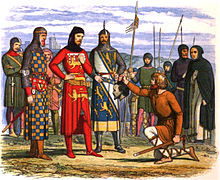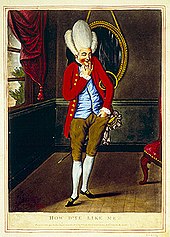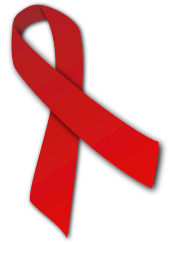
Lesbian, gay, bisexual, transgender and queer (LGBTQ) movements are social movements that advocate for LGBTQ people in society. Although there is not a primary or an overarching central organization that represents all LGBTQ people and their interests, numerous LGBT rights organizations are active worldwide. The first organization to promote LGBT rights was the Scientific-Humanitarian Committee, founded in 1897 in Berlin.

The rights of lesbian, gay, bisexual, and transgender (LGBTQ) people in the United Kingdom of Great Britain and Northern Ireland have developed significantly over time. Today, lesbian, gay and bisexual rights are considered to be advanced by international standards.

Lesbian, gay, bisexual, and transgender (LGBTQ) people in Jamaica face legal and social issues not experienced by heterosexual and gender-conforming people. Consensual sexual intercourse between same-sex partners is legally punishable by up to 10 years of imprisonment in the country.

The Homosexual Law Reform Act 1986 is a New Zealand Act of Parliament that broadly legalised consensual sexual practices between men as well as consensual anal sex regardless of partners' gender. It removed the provisions of the Crimes Act 1961 that criminalised this behaviour. The legislation established a uniform age of consent, setting it at 16 for both same-sex and opposite-sex partners.

Lesbian, gay, bisexual, and transgender (LGBT) rights in the British Crown dependency of the Isle of Man have evolved substantially since the early 2000s. Private and consensual acts of male homosexuality on the island were decriminalised in 1992. LGBTQ rights have been extended and recognised in law since then, such as an equal age of consent (2006), employment protection from discrimination (2006), gender identity recognition (2009), the right to enter into a civil partnership (2011), the right to adopt children (2011) and the right to enter into a civil marriage (2016).

New Zealand society is generally accepting of lesbian, gay, bisexual, transgender and queer (LGBTQ) peoples. The LGBTQ-friendly environment is epitomised by the fact that there are several members of Parliament who belong to the LGBTQ community, LGBTQ rights are protected by the Human Rights Act, and same-sex couples are able to marry as of 2013. Sex between men was decriminalised in 1986. New Zealand has an active LGBTQ community, with well-attended annual gay pride festivals in most cities.

Lesbian, gay, bisexual, and transgender (LGBT) people in Trinidad and Tobago face legal challenges not experienced by non-LGBTQ residents. Households headed by same-sex couples are not eligible for the same rights and benefits as that of opposite-sex couples.
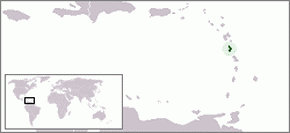
Lesbian, gay, bisexual, and transgender (LGBT) people in Dominica face legal challenges not experienced by non-LGBTQ residents. Homosexuality has been legal since 2024, when the High Court struck down the country's colonial-era sodomy law. Dominica provides no recognition to same-sex unions, whether in the form of marriage or civil unions, and no law prohibits discrimination on the basis of sexual orientation or gender identity.

Lesbian, gay, bisexual, and transgender (LGBT) people in Northern Ireland enjoy most of the same rights as non-LGBT people. However, the advancement of LGBT rights has traditionally been slower than the rest of the United Kingdom, with the region having lagged behind England, Scotland, and Wales. Northern Ireland was the last part of the United Kingdom where same-sex sexual activity was decriminalised, the last to implement a blood donation “monogamous no waiting period” policy system for men who have sex with men and, after intervention by the Parliament of the United Kingdom, the last to allow same-sex marriage. Compared to the neighbouring Republic of Ireland, all major LGBT rights milestones had been reached earlier in Northern Ireland, with the exception of same-sex marriage. Homosexuality was decriminalised in Northern Ireland a decade earlier and civil partnerships were introduced six years earlier.

Section 28 or Clause 28 was a legislative designation for a series of laws across Britain that prohibited the "promotion of homosexuality" by local authorities. Introduced by Margaret Thatcher's Conservative government, it was in effect from 1988 to 2000 in Scotland and from 1988 to 2003 in England and Wales. It caused many organisations such as lesbian, gay, bisexual and transgender student support groups to close, limit their activities or self-censor.

This is a list of important events relating to the LGBT community from 1801 to 1900. The earliest published studies of lesbian activity were written in the early 19th century.

A sodomy law is a law that defines certain sexual acts as crimes. The precise sexual acts meant by the term sodomy are rarely spelled out in the law, but are typically understood and defined by many courts and jurisdictions to include any or all forms of sexual acts that are illegal, illicit, unlawful, unnatural and immoral. Sodomy typically includes anal sex, oral sex, manual sex, and bestiality. In practice, sodomy laws have rarely been enforced to target against sexual activities between individuals of the opposite sex, and have mostly been used to target against sexual activities between individuals of the same sex.
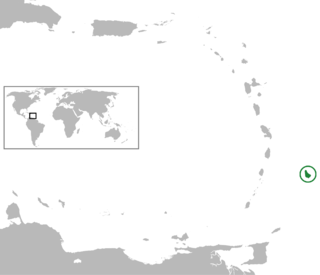
Lesbian, gay, bisexual, and transgender (LGBT) people in Barbados do not possess the same legal rights as non-LGBT people. In December 2022, the courts ruled Barbados' laws against buggery and "gross indecency" were unconstitutional and struck them from the Sexual Offences Act. However, there is no recognition of same-sex relationships and only limited legal protections against discrimination.
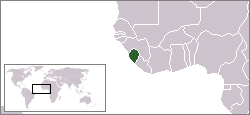
Lesbian, gay, bisexual, and transgender (LGBT) people in Sierra Leone face legal challenges not experienced by non-LGBTQ residents. Male same-sex sexual activity is illegal in Sierra Leone and carries a possible penalty of life imprisonment, although this law is seldom enforced.
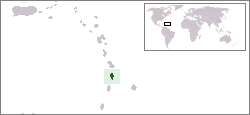
Lesbian, gay, bisexual, and transgender (LGBT) people living in Saint Lucia face legal challenges not experienced by non-LGBTQ members of the population. Same-sex sexual activity is illegal for males, though the law is not enforced.
LGBTQ conservatism refers to LGBTQ individuals with conservative political views.

Gay and lesbian citizens have been allowed to serve openly in His Majesty's Armed Forces since 2000. The United Kingdom's policy is to allow lesbian, gay, bisexual, transgender, and queer (LGBTQ) personnel to serve openly, and discrimination on a sexual orientation basis is forbidden. It is also forbidden for someone to pressure LGBT people to come out. All personnel are subject to the same rules against sexual harassment, regardless of gender or sexual orientation.

The majority of the countries of the Commonwealth of Nations, formerly known as the British Commonwealth, still criminalise sexual acts between consenting adults of the same sex and other forms of sexual orientation, gender identity and expression. Homosexual activity remains a criminal offence in 29 of the 56 sovereign states of the Commonwealth; and legal in only 26.
This is a timeline of notable events in the history of non-heterosexual conforming people of African ancestry, who may identify as LGBTIQGNC, men who have sex with men, or related culturally specific identities. This timeline includes events both in Africa, the Americas and Europe and in the global African diaspora, as the histories are very deeply linked.

The following is a timeline of lesbian, gay, bisexual, and transgender (LGBT) history in the 20th century.




